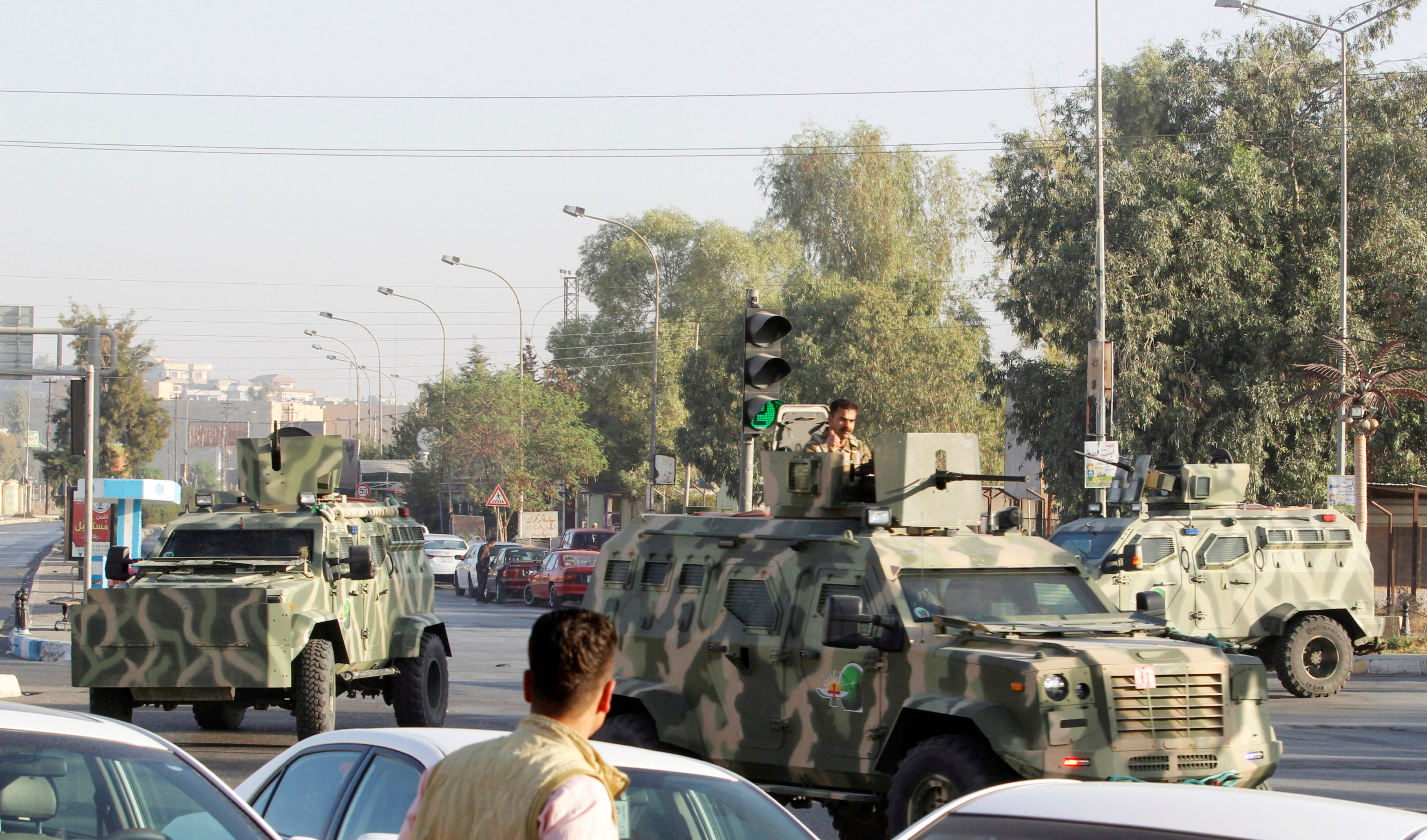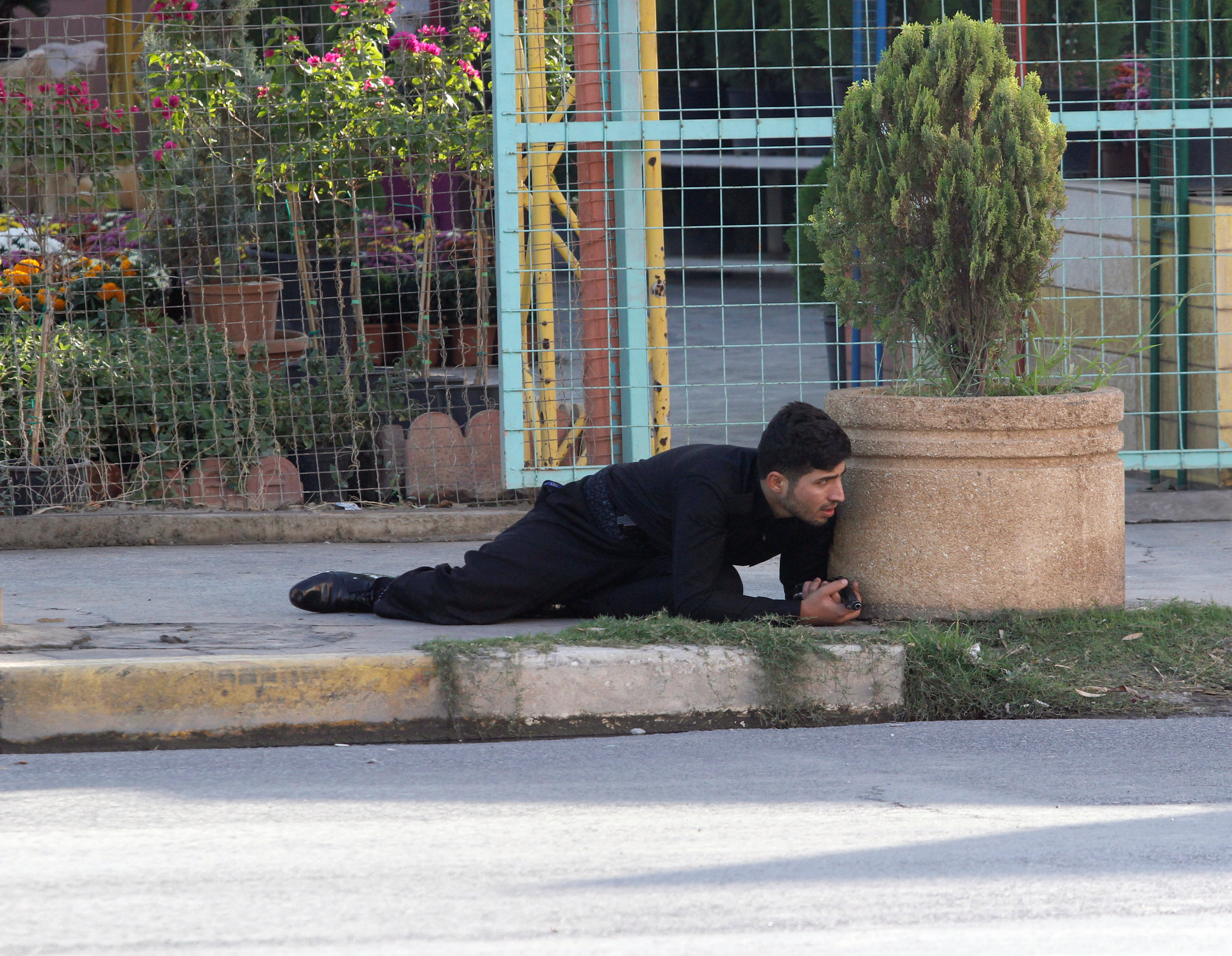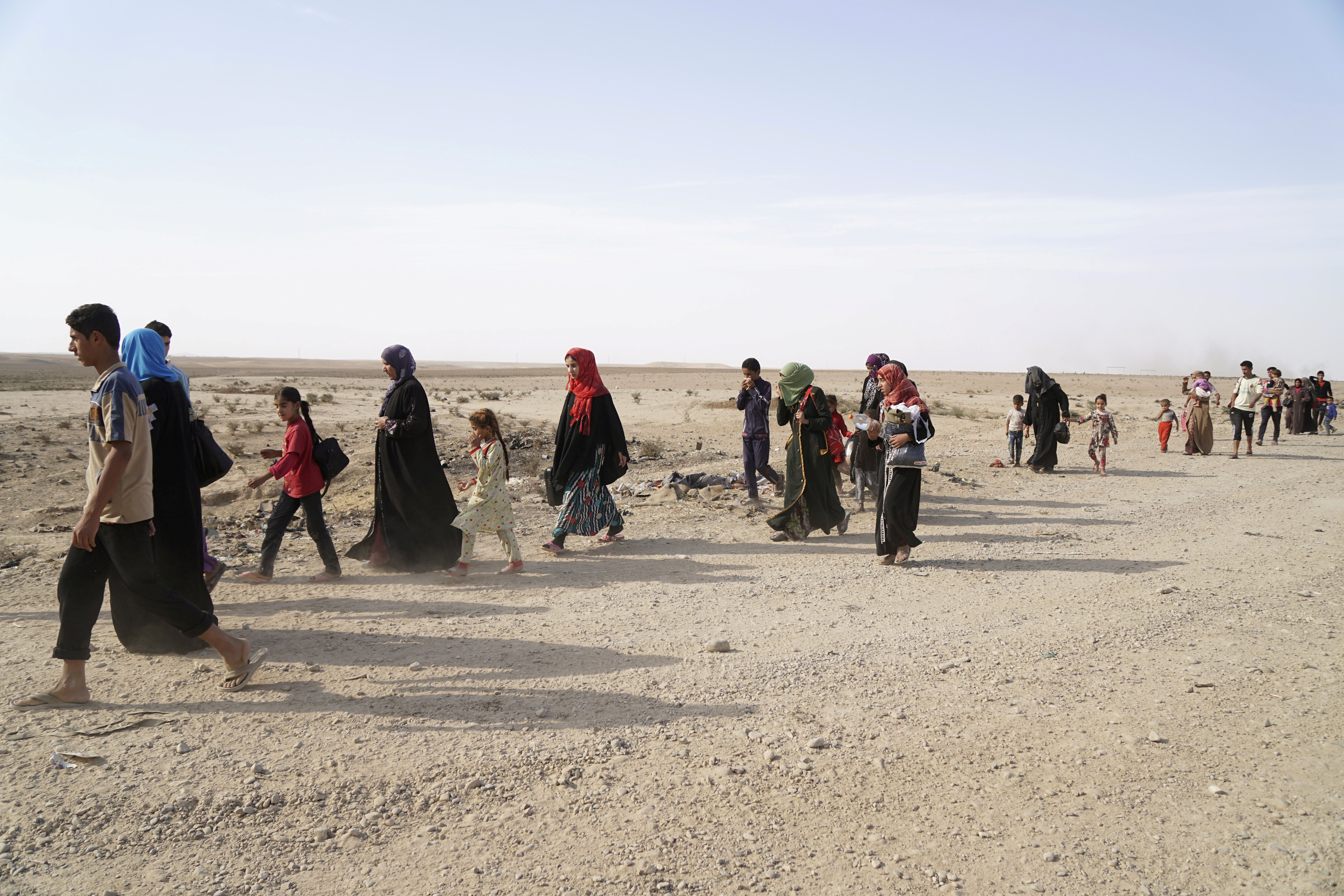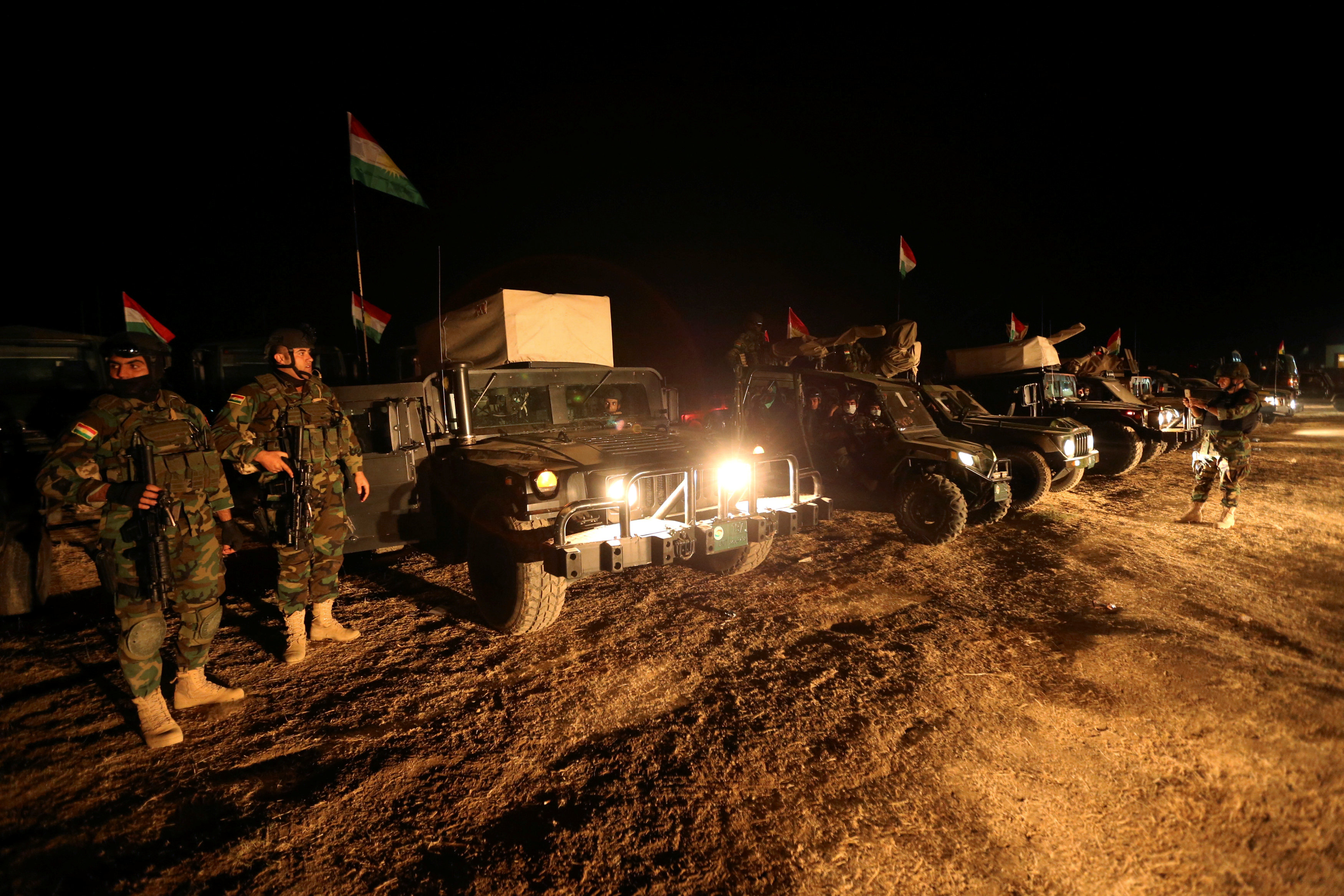
By Michael Georgy
ERBIL (Reuters) – When Kurdish forces began firing rockets at a suspected Islamic State hideout in northern Iraq, one of those inside, former bakery worker Walid Ismail, said he tried to persuade the others to surrender.
Some wanted to hold hand grenades to their throats and pull the pins. In the end, a Tunisian militant among them detonated a suicide bomb, hoping to wipe out their attackers.
Instead he killed five of the group and injured the rest. Ismail said the others were then killed by the Kurds and he only made it out by shouting that he had no bombs.
An online video shows him looking terrified as he emerges from the house in the town of Bashiqa near Mosul with an injured hand, to be arrested by Kurdish peshmerga fighters.
Today, the 20-year-old sits with his ankles shackled in a security compound in the city of Erbil, capital of Iraq’s Kurdish region, which is fighting alongside Baghdad to drive Islamic State from its stronghold in Mosul and nearby towns.
Islamic State suspects are rarely allowed to speak to media, but the Kurdistan Regional Security Council allowed Reuters to interview Ismail and another prisoner in the presence of an official.
They described how Islamic State transformed them from ordinary Mosul citizens into jihadists through promises and threats and said unjust treatment of their Sunni community by the Shi’ite-led government and armed forces played a major role.
Their accounts, which could not be verified, show how vital it will be to manage sectarian tensions after any victory over Islamic State to avoid a repeat of what has been the second wave of Sunni militants since Saddam Hussein was overthrown in 2003.
Ismail said Islamic State leader Abu Bakr al-Baghdadi had wide appeal when he walked into a Mosul mosque in broad daylight two years ago, and declared large parts of Iraq and Syria a caliphate, six years after al Qaeda was driven underground.
“I believed him,” he said, soft-spoken and wearing a gray track suit. “We loved them because they relieved us of the oppression of the Shi’ites.”
“WHATEVER YOU WANT”
Like other members of Iraq’s Sunni minority, Ismail alleged many innocent Sunnis had been branded terrorists by the army, which put up little resistance when about 800 Islamic State fighters swept into northern Iraq in pickup trucks in 2014.
“They said ‘whoever goes to the mosque is safe’,” They said ‘we are your Muslim Brothers. We aim to rid you of the Shi’ites and no one will oppress you’,” said Ismail.
“We will give you food and money. Whatever you want.”
In a separate interview, another prisoner suspected of fighting for Islamic State, Hazem Saleh, seethed when he recalled how the Iraqi army had treated his three brothers in the months before Islamic State appeared on the scene.
“They were laborers. They detained them for about a month and a half. They beat them. They hung them upside down. They dislocated their shoulders,” said the former Mosul blacksmith.
The Iraqi military and government, now under new leadership, deny such allegations and say they only went after terrorists.
Ismail’s account of the Tunisian’s role tallies with what Kurdish and Iraqi officials say is the tendency of foreign fighters to fully embrace Islamic State’s ruthless tactics and hardline ideology viewing opponents as infidels deserving death.
FINANCIAL PRESSURE
Some of the Iraqis, on the other hand, are described as criminal gangs which make money through kidnappings for ransom. Others sign up for practical reasons.
Ismail said he was struggling to support six younger siblings when Islamic State disabled the bakery that employed him by cutting off gas supplies, leaving him with few options.
“Daesh gave me 500,000 dinars ($400) per month to hold a machine gun and stand guard on a street,” he said, using a derogatory Arabic acronym to describe Islamic State.
Like Ismail, Saleh said Islamic State applied financial pressure, forcing his shop to pay heavy taxes and then offering a handsome salary to entice him to take up the cause.
“I have seven children, the youngest is two. They need to live,” he said. “There was a lack of work and poverty so most people joined because of that.”
For him, there was something else, he said. “They threatened to make my 14-year-old son wage holy war in order to pressure me … So I said goodbye to my family and left.”
Initiation was simple. Ismail was handed a uniform — an outfit similar to ones worn by the Taliban in Afghanistan — and told to watch for any suspicious activities.
He said Islamic State was highly secretive and obsessed with protecting its emirs, or leaders, especially from capture or air strikes. “We did not know who the leader of our army was. They would never allow us near strategic areas,” he said.
There did not seem to be any merit system. “They would just come along and say ‘you are an emir and you won’t be.”
He said eventually he became disillusioned but did not dare criticize. That would mean jail, or maybe far worse.
“You can’t speak out,” he said, citing a time when fighters caught his father violating an Islamic State ban on smoking and warned him that next time he would be whipped.
Saleh, who also surrendered in Bashiqa, appeared for the interview in military fatigues and with a hood over his head initially.
He said he inspected vehicles at Islamic State checkpoints, where any Iraqi soldiers or Kurdish fighters were arrested and anyone not living in the area was viewed with suspicion.
Later he said he worked preparing rice, meat and lentil meals for the fighters, who had one cook for each group of 12.
He said he had received 25 days of four-hourly training on how to handle an AK-47 assault rifle, but did not fight for Islamic State or condone violence.
Ismail, reflecting on his decision to join the group, was at a loss for words, and close to tears. He also went out of his way to praise his Kurdish captors, as the official looked on.
He said he lost touch with his family as he moved from Mosul to the town of Bashiqa, where he ended up in encircled by Kurds in that house, waiting for Islamic State emirs to deliver on promises to send reinforcements that never came.
The two men now face an uncertain future. With the battle for Mosul still going on, the security compound is home for people the Kurds in charge of the area consider a major threat.
If sufficient evidence is gathered, the men are likely to face trial.
Asked what he would like to tell his relatives, Ismail said: “Please be patient. If God is willing I will return.”
(Editing by Philippa Fletcher)













